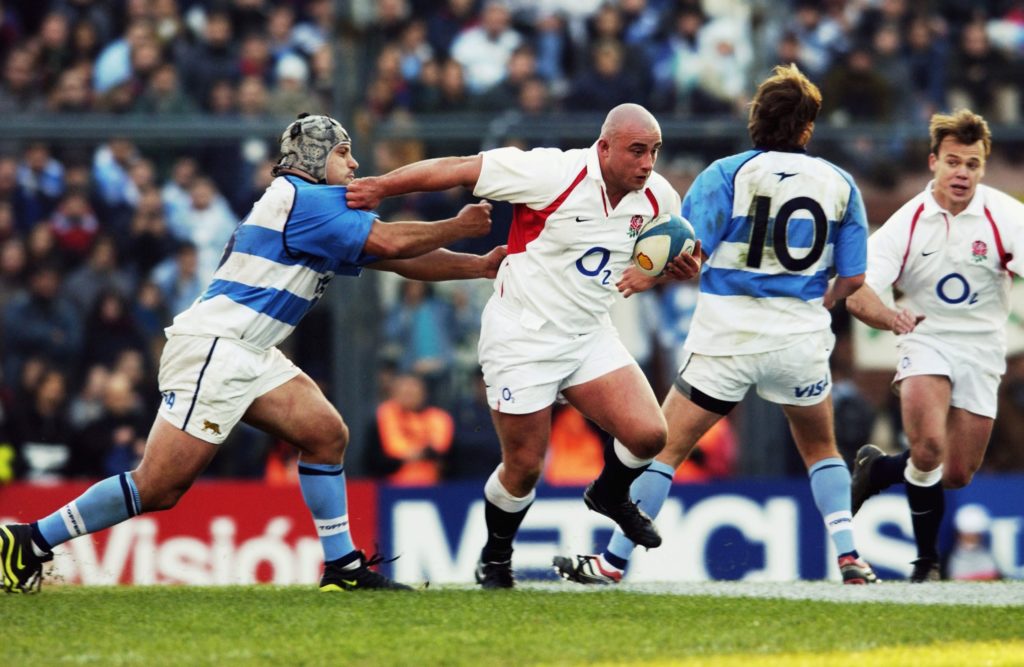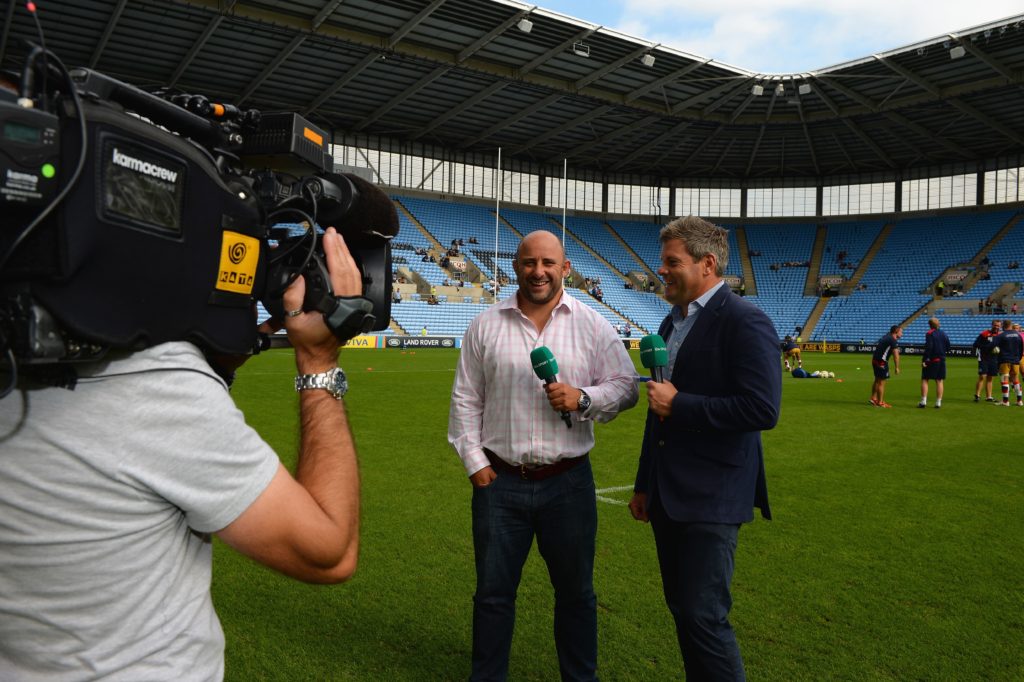A great captain under whom I played for many years once said during a pre-match team talk: “Pressure isn’t real; pressure is like feelings, it’s imaginary and it’s of your own making.” As much as I loved him, I was surprised at this drying up of his self-awareness. One senior, world-class player in the room, seated towards the end of the standard-format crescent of chairs, nodded quickly at the same time as staring into space. Some of the undecided middle-grounders hoped this was true and that, miraculously, their butterflies and self-doubt might somehow evaporate because their leader had made it so. The rest of us – knowing that Jedi mind tricks weren’t actually a thing – wondered: if pressure isn’t real, why do I feel like I could shit myself at any second?
There are those, of course, who skate above pressure, who hover around on a mental street map that leads to no dead ends, and can’t quite imagine what it might be like to exist in that pointless, anxiety-riddled, jam-packed world below. In fact, so relaxed are these, the luckiest of people, that they’ve never really given much thought to said world beneath. Why would they? Where would that get them? Well, it would help them to empathise with their fellow grafters, but otherwise you can see their point.
I would feel huge pressure to be selected and, if that didn’t happen on one week or another, I would drive myself mad trying to guarantee I’d get into the team the next week.
As a rugby player, I felt enormous pressure, almost all the time. When I was injured – which was a lot – I felt a low-level buzzing in the side of my mind from about three seconds after I woke up in the morning until I fell asleep at night. This buzzing was a chronic, passive-aggressive reminder that I was the guy who was being paid by someone and offering no return on said investment. I was the guy who wasn’t delivering as the end of a contract approached. I was the guy who was underwhelming.
I once called our club owner on his mobile from my parents’ house as I slowly convalesced from yet another Achilles’ tendon operation. I called him to apologise for being injured again and to assure him that, despite my apparent invisibility, I was doing my best and wasn’t just sipping cappuccinos by day. He was gracious and kind, and it indeed allowed my racing mind to settle somewhat.

When I was fit, though, I found other ways to feel pressured. I would feel huge pressure to be selected and, if that didn’t happen on one week or another, I would drive myself mad trying to guarantee I’d get into the team the next week.
One coach – Steve Meehan – I think recognised this. David Barnes, the former Bath prop, and I were great mates and hugely competitive, neither of us particularly good at being left out of the starting team. So Steve got us together and told us that we’d be rotating – not something commonly done back then – every fortnight (only one prop on the bench in those days, remember). This eased the pressure inside our respective, hyperactive brains significantly as we knew exactly where we stood and we both performed better for it.
As the final whistle blew every weekend, I would physically feel my body relax. I would become almost limp of limb as all the tension of the week hissed out through the pores of my skin. It was beautiful and it was a moment I eventually learnt to properly acknowledge and appreciate. I would think of this very real physical sensation and use it as a calming source of motivation on a Tuesday afternoon, but it didn’t last long.
Roughly two minutes after I got out of the bath and sat in my seat – the one just behind the door that I nicked from Iain Balshaw while he was on World Cup duty – wham, I was thinking about the tighthead prop and the forward pack we’d be facing next week. I tried my very best not to think about these things and to enjoy the moment – I really did, for years – but it rarely worked.
Being a front row, violent physical confrontation was inevitable… I never felt it would have served me well to display much vulnerability around my brothers in arms, so a career in acting began.
I wonder now if that self-imposed expectation and occasional catastrophism actually helped me. Maybe it was what I needed in order to push myself as hard as I needed to in order to compete. I also used to wonder if others felt the same. I know now that many did, actually; I even once heard Martin Johnson say of the minutes leading up to a big Test match: “Y’know, we’re all there, shitting ourselves, just wanting to get out there and get into it.” Oddly, I clung hard to these words for years, taking comfort from them.
Being a front-row forward, violent physical confrontation was inevitable, especially during the first half of my playing career. To this end, I never felt it would have served a prop well to display much – if any – vulnerability around his brothers in arms, so a career in acting began (I’m over-egging it a bit here as I loved my rugby career and relished the physical side of training and matches. In fact, the controlled violence is the only part of the game I actively miss).
Concealing apprehension did become a job in its own right, though. As I got older and became a senior player in various sides, I would think back to the blokes to whom I used to look for reassurance in the changing room as kick-off loomed. I knew that I had to become that bloke, and maintaining that air of confidence and outright aggression became onerous itself.

As for the times that felt entirely free of pressure, well, they did exist. As well as the above-mentioned post-final whistle decompression, the referee’s final knock on the door, somehow, felt blissful. The waiting and the talking were over. There was nowhere else I’d want to be than with those men, walking out to fight with those other men. It felt almost otherworldly in its purity of focus. All questions were answered as self-doubt became leering aggression and a sense of invincibility washed us clean. We felt safer and more unified in those moments than I think most people ever have the chance to feel.
As I look back, I realise that something I’ve always said – and indeed something I’ve just written above – isn’t actually true. I don’t just miss the rough and tumble, I miss taking the field with men for whom, in that moment, I would have lain in the road. I miss that moment because that was the moment that made all the pressure worth it.
More columns from David Flatman
If you’ve enjoyed this article, please share it with friends or on social media. We rely solely on new subscribers to fund high-quality journalism and appreciate you sharing this so we can continue to grow, produce more quality content and support our writers.



Another gem from Mr. Flatman. It’s why I subscribe - to get some high quality original content